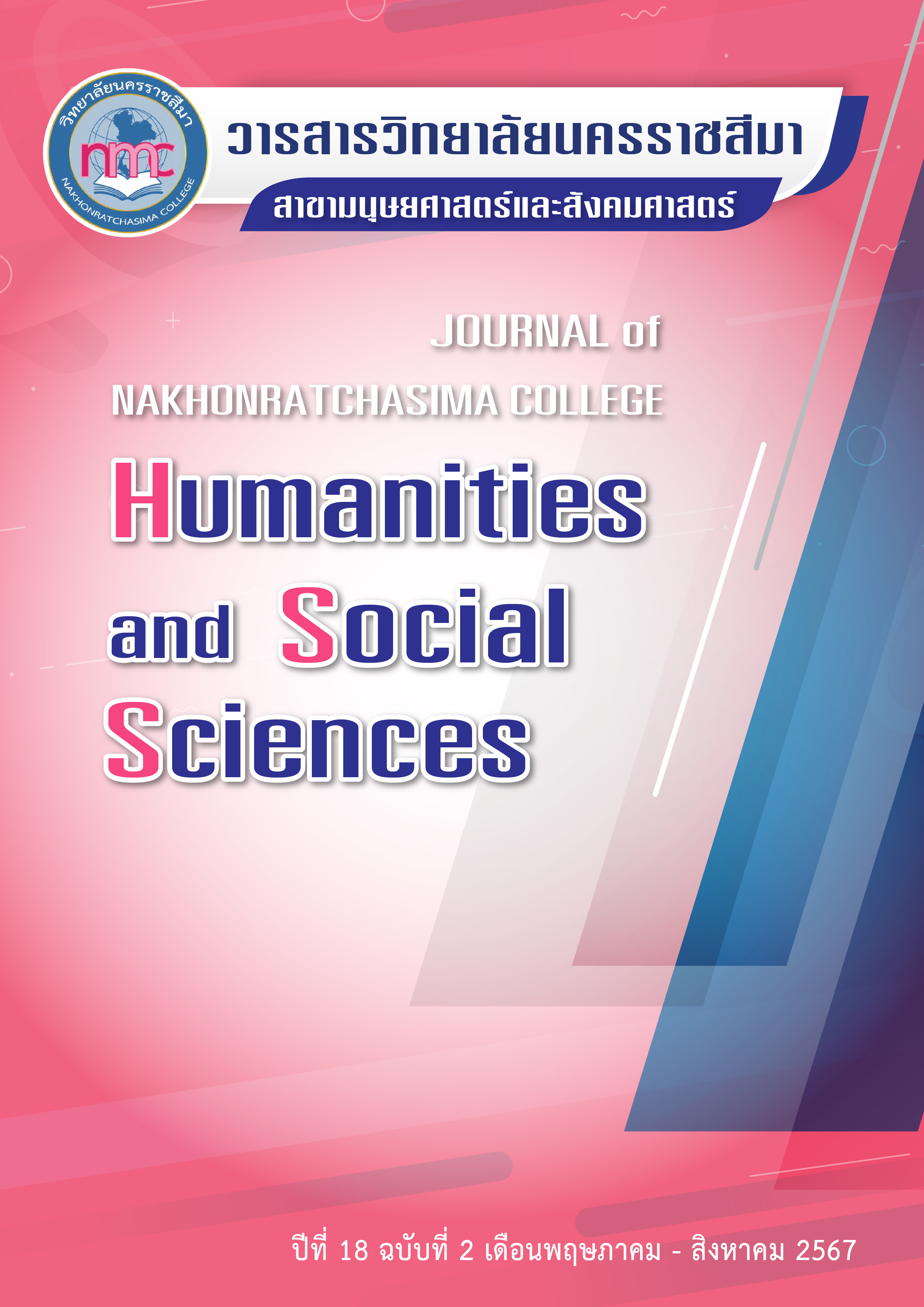Ethic principles manifested in human community with a shared future initiative in semiotic perspective
คำสำคัญ:
Human Community with a Shared Future, Semioethics, Ethic principlesบทคัดย่อ
The concept of a human community with a shared future has gained increasing traction in recent years as a new model for global governance and cooperation. This paper examines the ethical principles underpinning this initiative through the lens of semiotic theory. Drawing upon seminal concepts in Confucian philosophy, it identifies benevolence, righteousness, propriety, wisdom, and trustworthiness as core moral values expressed through the shared future vision. A qualitative textual analysis reveals how linguistic, ritualistic, and artistic manifestations across micro, meso, and macro levels symbolically reinforce these humanistic ethics. At the individual level, self-cultivation principles advocate integrity and self-restraint. Nationally, priorities of collective welfare over self-interest are encoded via discourses and practices. Globally, the emphasis on mutual prosperity through collaboration and empathy imbues the inter-community relationship. The study concludes that the symbolic construction of a shared future functions as an aspirational moral blueprint. By delineating common codes of conduct and mechanisms for their social enactment, citizens worldwide are encouraged to internalize and implement cooperative virtues. This semiotic scaffolding through ethical imagery and activities can potentiate large-scale attitudinal and behavioral transformation towards building an equitable, inclusive and caring global community.
เอกสารอ้างอิง
Angle, S. C. (2005). Decent democratic centralism. Political Theory, 33(4), 518-546.
Anagnost, A. (1994). The politics of ritual displacement. In C. J. Mackerras & R. R. Wang (Eds.), Images of the People: Chinese Political Posters and Visual Culture (pp. 219-254). Clarendon Press.
Anagnost, A. (1997). National past-times: Narrative, representation, and power in modern China. Duke University Press.
Bell, D. A. (2008). China's new Confucianism: Politics and everyday life in a changing society. Princeton University Press.
Blum, S. D. (2002). Portraits of “primitivism”: Levi-Strauss in China. In F. Jullien et al (Eds.), La Pensée en Chine Aujourd'hui (pp. 203-214). Gallimard.
Billioud, S. & Thoraval, J. (2015). The Sage and the People: The Confucian Revival in China. Oxford University Press.
Chan, G. (2018). The ‘community of common destiny’ in Xi Jinping’s New Era. Journal of Contemporary China, 27(113), 612-627.
de Bary, W.T. (1991). Learning for One's Self: Essays on the Individual in Neo-Confucian Thought. Columbia University Press.
Dirlik, A. (2011). Culture against history? The politics of East Asian identity. Development and Society, 40(2), 167-190.
Deng, Y. (2017). China's struggle for status: The realignment of international r elations. Cambridge University Press.
Dirlik, A. (1989). Postsocialism? Reflections on 'socialism with Chinese characteristics. Bulletin of Concerned Asian Scholars, 21(1), 33-44.
Fong, V. L. (2004). Only hope: Coming of age under China's one-child policy. Stanford University Press.
Harvey, D. (2005). A brief history of neoliberalism. Oxford University Press.
He, B. & Guo, Y. (2016). Nationalism, national identity and democratization in China. Routledge.
Holbig, H. (2013). Ideology after the end of ideology. China and the quest for national identity. GIGA Working Papers, 230.
ดาวน์โหลด
เผยแพร่แล้ว
รูปแบบการอ้างอิง
ฉบับ
ประเภทบทความ
สัญญาอนุญาต
จรรยาบรรณผู้เขียนบทความ
ผู้เขียนบทความต้องรับรองว่าบทความนี้ไม่เคยตีพิมพ์ในวารสารใดหรือสิ่งพิมพ์อื่นๆ มาก่อน ต้องไม่คัดลอกผลงานผู้อื่นมาปรับแต่งเป็นบทความของตน และไม่ได้อยู่ระหว่างการเสนอเพื่อพิจารณาตีพิมพ์ อีกทั้งยอมรับหลักเกณฑ์การพิจารณาและการตรวจแก้ไขบทความต้นฉบับโดยกองบรรณาธิการวารสารวิทยาลัยนครราชสีมา สาขามนุษยศาสตร์และสังคมศาสตร์
บทความทุกเรื่องได้รับการตรวจพิจารณาทางวิชาการโดยผู้ทรงคุณวุฒิที่มีประสบการณ์และมีความเชี่ยวชาญตรงตามสาขาของบทความ ซึ่งผู้เขียนต้องแก้ไขตามคำแนะนำของผู้ทรงคุณวุฒิภายในระยะเวลาที่กำหนด หากไม่เป็นไปตามกำหนดกองบรรณาธิการขอสงวนสิทธิ์และยกเลิกการตีพิมพ์โดยจะแจ้งให้ทราบต่อไป
ข้อความที่ปรากฏในบทความของวารสารนี้เป็นความคิดเห็นของผู้เขียนซึ่งไม่เกี่ยวข้องกับวิทยาลัยนครราชสีมาแต่อย่างใด และกองบรรณาธิการขอสงวนสิทธิ์ในการพิจารณาและตรวจประเมินบทความเพื่อตีพิมพ์ในวารสารของวิทยาลัยนครราชสีมา สาขามนุษยศาสตร์และสังคมศาสตร์



